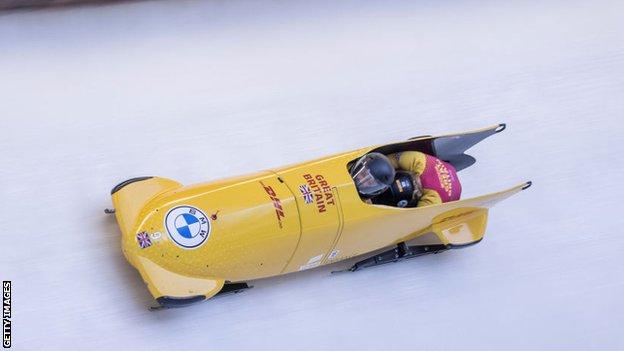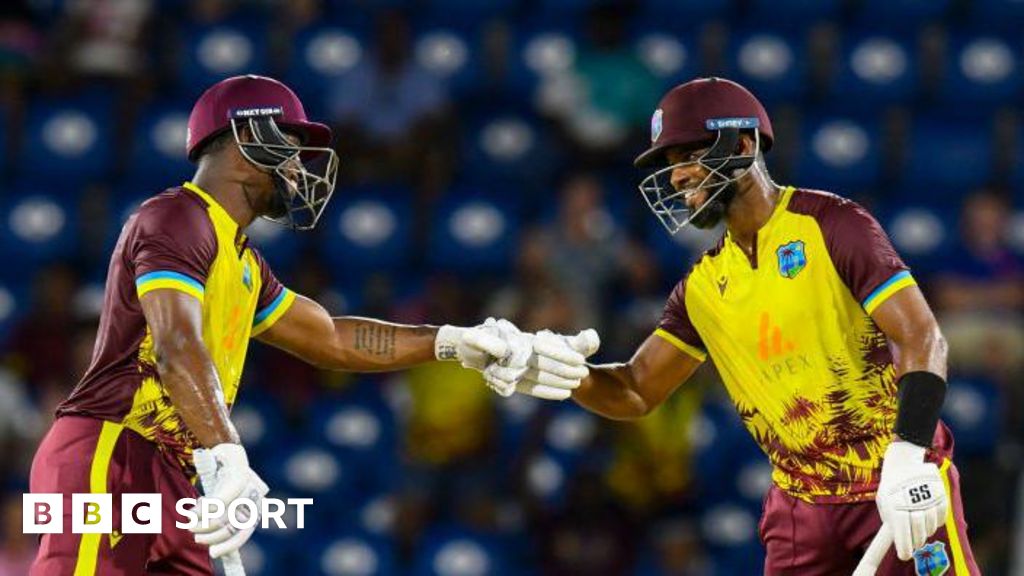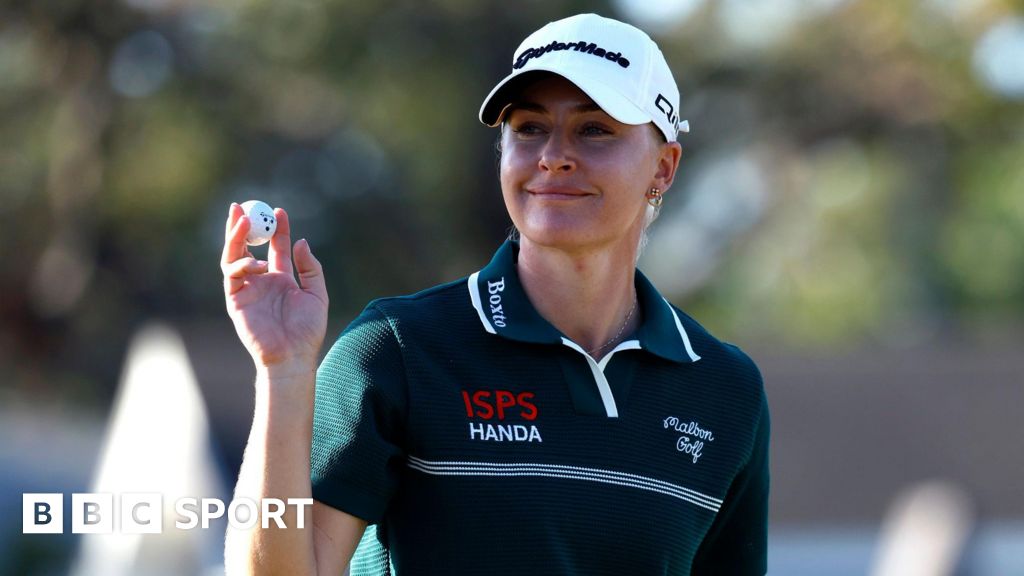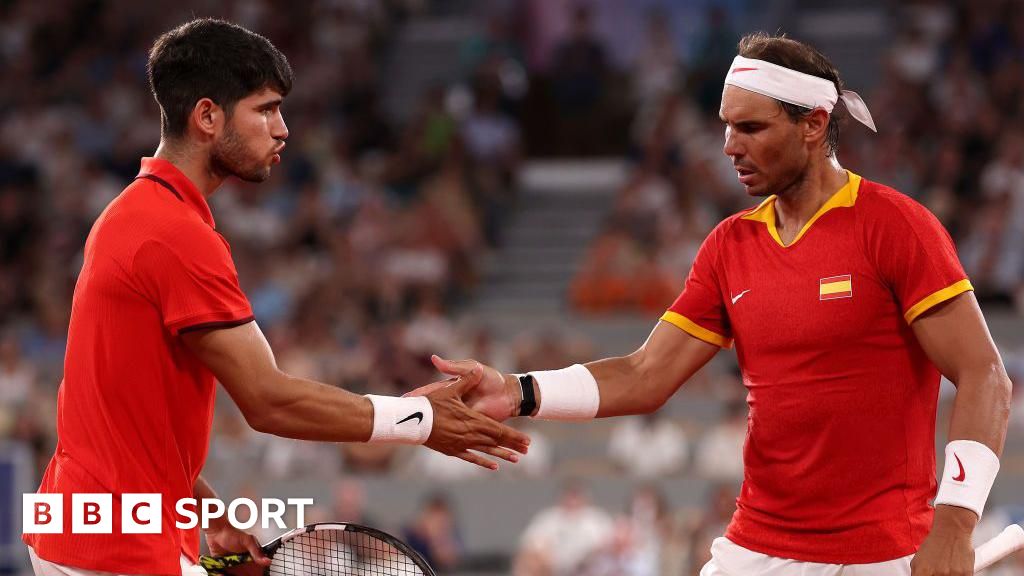ARTICLE AD BOX

Montell Douglas is a bobsleigh brakewoman on the Great Britain team, vying to compete at the 2022 Winter Olympics in Beijing. She is also a former sprinter for Great Britain, competing in the 100m and relay at the 2008 summer Olympics, also in Beijing. This is her second BBC Sport column.
I am 35 years old but within sport I have been called an OAP. As an athlete, I feel like I have faced prejudice because of my age.
I know I can't do this forever. I said in my last column that this Olympics will probably be my last, but not because I am 'too old'. It is because I want to do other things with my life.
Sometimes, you can feel very disposable as an athlete. As soon as you hit 28, 29, you're told 'you're getting on now'. Do you know how many times you are reminded of your age? The only time I think about my age is during recovery, because it does take me longer now to bounce back from sessions I once could have done back-to-back, or that minor injury that dragged on longer than expected.
When I joined bobsleigh I was 29, which was deemed too old for me to drive the bobsleigh. I am often asked why I didn't hop into the front seat. It was not out of a lack of desire to; I would love to drive, but I was told categorically that I was too old to learn how to because it takes a long time.
In some things age can be a limiting factor, but why is it the limiting factor when it comes to performance decisions? Talent doesn't go anywhere, much to the confusion of those of differing opinion. I have learnt things at 29 and older that I didn't know at 22 when I was the fastest British woman of all time.
Before the 2012 Olympics, I moved to America to train. I was 25 and remember feeling that I was old, because I was constantly being told in the UK that I was 'getting on' and that I'd 'lost it' as my performances weren't the same. But in America, my age never came up. My talent was celebrated, and I was respected by my training partner and coaches for my attitude and hard work towards my craft.
Even at 31, in the summer while training to make the 2018 Pyeongchang Winter Olympics, I opened my athletics season in the 100m with the fastest time I had ever started a season with.
You should never feel, at the age of 25, that you are 'past it'. I hear young athletes now working out how many seasons they've got left. Please do not limit your time - you are as young and as fit as you feel. Yes, you may need to adjust things and train smarter, but you are still 'good enough' to achieve your goals. I got multiple PBs last year at the age of 34.
If you limit yourself or let others limit you, you won't achieve what you possibly could. As long as you think you can, you possibly will. Judge athletes on the value of their merit, which is performance.
To athletes in the same position, those who are being 'retired' by governing bodies, or by team-mates, or coaches who don't respect what you bring to the table - know that there are other athletes experiencing the same thing. The time comes to retire when you feel and say it is time for it to come. It shouldn't be placed upon you.
Don't devalue yourself and your ability over your age. It should never be age over ability.
The bobsleigh season so far
 Montell Douglas competing in Innsbruck behind pilot Mica McNeill
Montell Douglas competing in Innsbruck behind pilot Mica McNeillWe are now three races into the bobsleigh World Cup season. I didn't have ideal prep going into testing for World Cup selection because I had four weeks of basically no training with a toe injury.
After seeing a nurse and being told immediately that my toe was broken, I was told I couldn't run for six weeks. Testing was in less than four weeks.
I didn't panic, thanks to my super medical team that helped keep me grounded, but I had to work out what I could do. I knew I had to keep training, so that day I was straight on the bike. The key to coming back from injuries is to not stop training, just do what you can.
I was then able to see a specialist foot doctor, and after an emergency scan he told me my toe was not broken. At that point I had about a week until testing, so I needed to get back to running.
In the end, I did very well at testing. I was ranked number one so I knew, going into the season, I was going to get the first race in Innsbruck and last week's race in Altenberg.
In Innsbruck, we finished 16th out of 25 sleds. We need to finish in the top 67% of the field three times to qualify the sled for the Winter Olympics, so we put a tick in that box.
Unfortunately, our sled then didn't achieve that in the second race in Innsbruck or in Altenberg last weekend, so we now need really high-quality performances from us as a team to make that happen.
I've come out of Altenberg with a painful neck, just from the ride on the track. I'm one of the few that actually like the track - it has a special place in my heart, but it's very rough. People call it 'Altensmash' for a reason, because it's very hard to get down, and even harder to get down fast.
The plan now is for me to race with pilot Mica McNeill in Winterberg this weekend, as the priority is getting the sled and Mica qualified for Beijing.
It's very doable, but it's not easy. We are focused and know that we need to bring out our top performance to hit the qualification standard. To qualify itself is like our Olympic Games - we have to put everything in.
The success of our Great Britain bobsleigh men in Brad Hall's sleds so far this season - a silver medal in the four-man and bronze in the two-man - has given the whole team a boost. It's so good to see people within your team doing big things, because it allows you to keep the faith in what you're doing.
We just want to get the results and join in the party too.
Montell Douglas was speaking to BBC Sport's Katie Falkingham.

- Call of Duty or Battlefield with Bukayo Saka: The England star talks gaming on Press X to Continue
- You're Dead to Me: Who was 'the epitome of the American Renaissance man'?


 2 years ago
84
2 years ago
84








 English (US)
English (US)